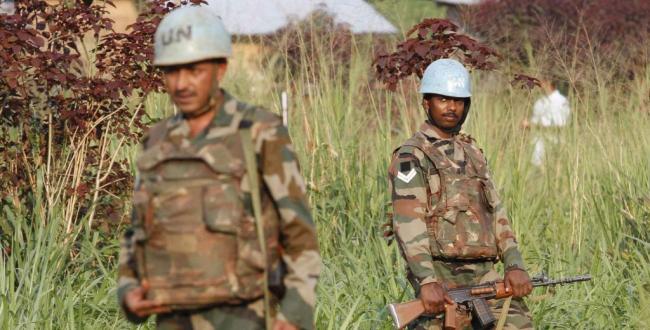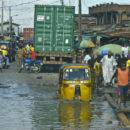Somali Remittances: UK Government strives to support safer remittance flows to Somalia – By Andrea Leadsom

 In recent months, the UK government has worked closely with the Somali community on the issue of remittances. I understand the levels of anxiety in the community, as a result of changes to banking arrangements for key Somali MSBs and the fragility of many peoples’ situation in Somalia.
In recent months, the UK government has worked closely with the Somali community on the issue of remittances. I understand the levels of anxiety in the community, as a result of changes to banking arrangements for key Somali MSBs and the fragility of many peoples’ situation in Somalia.
Since coming into my new Ministerial role earlier this year, I have made sure that the government is doing what it can to ensure remittances continue to flow through accessible, secure channels from the UK to all regions in the world, including Somalia.
At a number of community meetings over the last month, government officials have listened to your concerns and given you more information about the work we are doing.
The issue is complex and international. Across the world, banks have been nervous about their business with money transmitters.
This is because when they move money around the world, the banks need to have systems in place to understand where the money is from, where it is going, and why. This helps them prevent criminals from using their services to launder money, and individuals from providing funding to terrorists.
Money transmitters have the same obligations. But the issues are if anything more difficult because they tend to pull together a large number of individual payments and process them in one group through their bank account.
The UK government understands that it is important that UK citizens have access to a competitive, efficient and transparent remittance sector.
We have set up an Action Group on Cross Border Remittances. This group brings together the community, money remitters, banks, regulators, law enforcement and government officials so that we can work together to find a solution.
The Department for International Development and the World Bank are also working with UK-Somali money remitters, banks and the community both in the UK and Somalia to build a Safer Corridor.
The pilot is designed to improve the transparency of the systems that are already in place. This will enable money remitters to provide banks with evidence about who the money has gone to and that it actually arrived.
I have contacted the leaders of the banks myself, to encourage them to engage with this vital work and to support the money remitters serving your community.
And we will continue to consult community representatives to make sure that the proposals for the Safer Corridor are designed in a way that works for you and your family members and friends who you send money to in Somalia. I hope everyone in the community will get involved, to ensure that these developments work for you and your families.
Community representatives, government and money remitters have prepared a fact sheet, to ensure that, as the market adapts, those remitting funds to Somalia have clear information about how they can do so.
The hard work and community spirit of the Somali diaspora has helped to support those in the Horn of Africa for whom remittances provide a vital lifeline.
I am committed to the continued close partnership between the UK government and the Somali community in the coming months to secure the future of remittance giving to Somalia. Together we can make a difference.
Andrea Leadsom is the Member of Parliament for South Northamptonshire and the Economic Secretary to the Treasury. You can follow her on Twitter @andrealeadsom







Hi Andrea,
International remittance is a topic close to me and I wanted to make you aware of a mobile money solution called HomeSend that can help. I know some UK citizens have had success with Kenyan channel and so I thought I would suggest it. I think WorldRemit and MasterCard offer the service. It’s secure (world bank mandated) and cost effective.
https://www.homesend.com/
Best of luck.
Cameron
It is a challenge to be talking about financial inclusiveness and access to finance at a time when banking regulators, particularly in New York and the US, are putting pressure and billion-dollar fines on the banks with the result that the banks are cutting off whole countries. It is vital that banks, regulators and other experts should work together to find ways to make remittances, including to Somali, as cheap and transparent as possible as that brings more people into the financial mainstream. Everyone should have access to financial services!